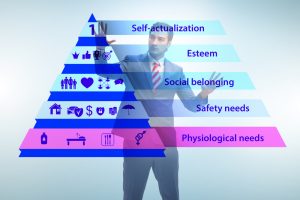 Written by Bailey Hudson,
Written by Bailey Hudson,
What makes a healthcare system effective, whether it is in a crisis situation or everyday? It’s not a matter of technology or skilled clinicians – it’s about the capacity to nurture both mental and physical wellbeing. In a culture where stress and uncertainty are the norm, psychologists are the undeserved heroes of medicine. They provide a key component in bringing patients and medical staff the emotional and cognitive resources they need. When we put psychological skills into health care, we’re building systems that not only treat, but also know people.
Understanding Healthcare Resilience
Healthcare resilience is about building systems to withstand and bounce back from crises. It ensures continuity of care, even in an emergency. Psychologists help build resilience and empathy for clinicians and patients.
Defining Resilient Systems
A robust health care system is flexible, effective, and responsive in the event of an emergency. It involves open communication routes, robust systems, and open protocols. They focus on making rapid decisions and distributing resources. Predictive modelling prevents problems and reduces outages.
By implementing technology, you can increase resilience through telehealth and electronic records. Positive collaborations with local services reinforce external resilience, forming support groups. You make these pieces run smoothly together so patients get better outcomes.
Psychology’s Role in Resilience
Mental health practitioners aid in healthcare resilience by improving wellbeing and reducing stress. They offer therapeutic practices to employees, which in turn encourages a positive working environment. This helps nurses keep emotions in check, which is important during stressful moments.
Psychologists can help patients recover, too, by providing coping skills that enhance quality of care. Emotional intelligence training for leadership encourages communication and decision making. You have to know these psychological factors in order to create a truly robust healthcare system.
Empowering Psychology Professionals
Psychology professionals are the cornerstones of a healthy health care system. Their empowerment requires specialized training, cross-discipline collaboration, and influential policy advocacy. If you focus on these priority areas, you can make a difference in mental health care.
Enhanced Training Programs
The key to improving the quality of psychology practitioners is investment in dedicated training courses. You could focus on continuing education and certification courses to stay abreast of the current research and practice. Clinical expertise and scientific knowledge must be prioritized in order to deliver high-quality patient care.
For instance, access to HE Diploma for Psychology, which helps budding professionals acquire the fundamental understanding and abilities required for further education and career growth. This allows them to come into the profession with the knowledge and skills needed to make a positive impact in healthcare delivery systems.
New training techniques like simulation training and online learning can build your skills across multiple clinical contexts. These methodologies are versatile and flexible so that you can study on your own terms and put what you have learned to real-world use.
Mentorship programs can offer you further guidance and help match you with senior professionals who have insight into complex cases and career strategies. By providing opportunities for learning and development, you promote the growth of a holistic, skilled mental health care workforce.
Interdisciplinary Collaboration
This requires a close partnership with other health care providers to ensure quality patient care. You learn new skills and become better at what you do by being in teams with doctors, nurses and social workers.
Being in integrated care teams helps you to better accommodate patients’ multidisciplinary demands. By transferring knowledge and practice from one field to another, care plans can be comprehensive and individualized. Such a collaborative model results in better patient care by drawing on the collective capabilities of different specialties.
Embracing cross-disciplinary workshops and conferences gives you a better chance to share your ideas with experts across disciplines. These interactions bring respect and insight between individuals, dissolving silos and creating a healthcare team environment that works for all.
Policy and Advocacy
As a psychologist, lobbying for mental health-friendly policies is critical. You can advocate for legislation and funding that puts mental health care at the forefront of your mind. By being part of advocacy groups, you create a healthcare system that cares about and pays attention to mental health.
It is important to stay abreast of what is happening on the policy front. When speaking with policymakers and stakeholders, you can communicate the value of mental health and make concrete, actionable recommendations.
Organizing with community groups will give your activism more leverage. By working together, you can demand policies that expand access to mental health care so that everyone has a chance to thrive.
Integrating Psychological Practices
Resilience depends on improving healthcare through psychotherapy. You can use science, technology, and patient priorities to change things for the better.
Evidence-Based Interventions
Including evidence-based interventions means that psychological therapies are evidence-based and effective. You may find cognitive-behavioral therapy (CBT) particularly useful because it addresses mental health conditions such as anxiety and depression.
You can also use motivational interviewing as a way to change the behavior. Such treatments not only enhance mental health but also improve physical health by reducing stress and enforcing medical prescriptions.
Learning these techniques will help you solve challenging healthcare issues.
Technology-Enhanced Tools
Technologically, we have new tools that can be incorporated into psychotherapy. You could harness telepsychology to make appointments more accessible for patients who are unable to visit in person. This can change everything in rural or underserved markets.
You can even use mental health apps on mobile devices to access tools and interventions. Websites that feature VR experiences can be used in exposure therapy for disorders such as PTSD.
Using technology to harness your psychology practice can significantly boost your reach and impact.
Patient-Centered Care
Patient-focused medicine addresses the patient’s individual wants and needs. You’re welcome to develop collaborative care protocols that acknowledge a patient’s unique experience and include them in decisions.
Active listening and direct communication fosters credibility. This puts care in step with patient values, increasing satisfaction and compliance.
If you address their issues, you empower your patients and help them live healthier lives.
Future Perspectives
The health care system can only continue to flourish because psychologists play an important role. Recent research and global trends suggest the need for psychological expertise to be integrated into healthcare models.
Research and Innovations
Psychology is opening the door for new forms of treatment in medicine. Researchers are pursuing digital interventions such as apps and virtual therapy to help increase access and effectiveness. These tools provide personalized support where people can interact with programs that target them.
There is also an increasing emphasis on interdisciplinary research, where psychology links up with neuroscience and biomedicine. That partnership seeks to uncover new information about mental health, establishing treatments that are grounded in a holistic understanding of the mind-body interface. Crossing these lines, medicine can become more holistic.
Global Healthcare Trends
The world is moving towards giving health systems the mental resources they need to respond to new needs. As more and more chronic conditions emerge, mental health needs to be taken into account in treatment decisions. Countries invest in whole-of-care mental health training for clinicians to make them more equipped to deliver integrated care.
There’s also an infusion of community-based models where mental health services are delivered at the local level to foster community resilience. International groups have called for policies to integrate mental health into primary care and promote its contribution to health coverage. When you engage with these new models, you’re laying the groundwork for a future in which psychological care becomes the foundation of global health.
Conclusion
Psychology specialists help to create sustainable healthcare networks by tackling mental as well as physical health. Through better training, cooperation and advocacy, they help establish comprehensive, patient-centred care. Making space for them brings robust, more effective healthcare to everyone.
Author’s Bio
Bailey Hudson is a freelance writer. Bailey has worked in the health industry since graduating from university. When not writing about the newest topics on health and wellbeing, Bailey can be found researching new travel locations.
Please also review AIHCP’s Stress Management Certification program and see if it meets your academic and professional goals. These programs are online and independent study and open to qualified professionals seeking a four year certification

 Written by Veronica Turner
Written by Veronica Turner

